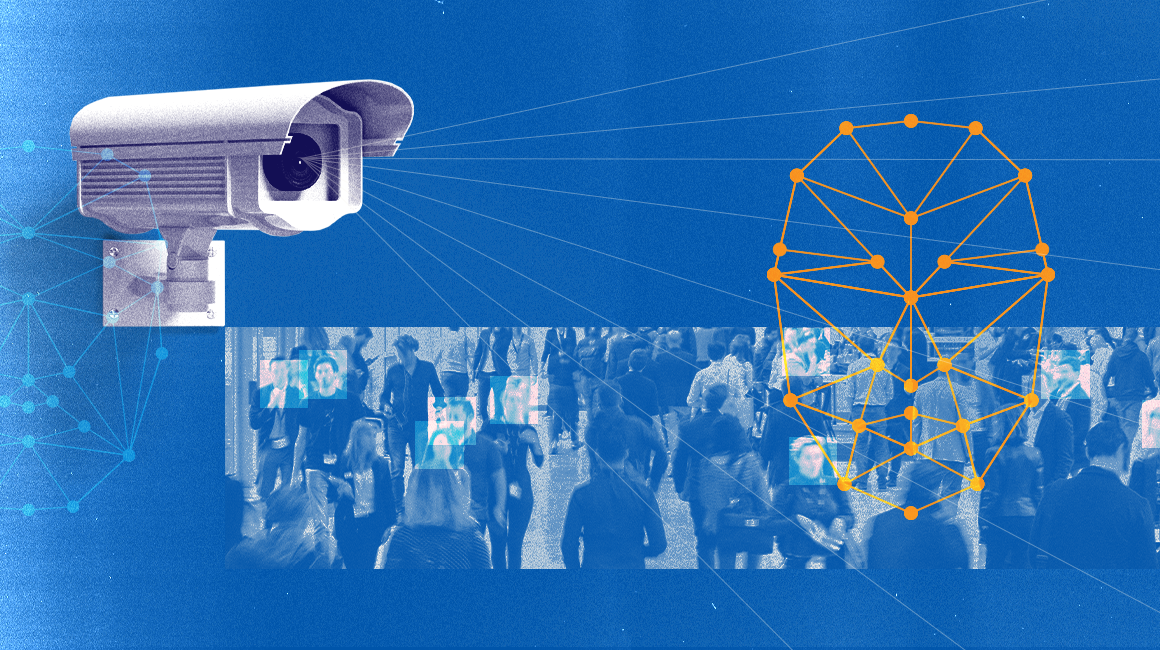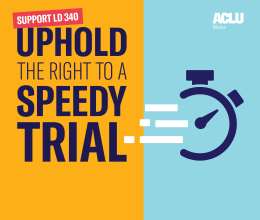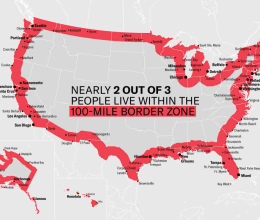
by Michael Ratsimbazafy
Facial recognition poses an unprecedented threat to all our civil rights and civil liberties. It can be used as a tool of mass surveillance by the government. The technology, which studies have found is racially biased, is especially harmful for people of color. That’s why regulating or banning facial recognition has been a core ACLU priority.
Maine recently passed a groundbreaking state law regulating how state and local governments use facial recognition technology. The law prohibits most government uses, with limited exceptions for law enforcement.

Why Regulate Facial Recognition?
Facial recognition technology verifies a person’s identity based on the unique features of their face. The technology compares these unique features against other faces in various databases.
However, studies have found that the technology is racially biased. According to studies by MIT scholars, facial recognition algorithms mistake and misclassify Black women almost 35 percent of the time, while white men are recognized at a nearly perfect rate. A comprehensive study of nearly 200 algorithms by a federal government agency found the technology had trouble identifying racial minorities, and especially Black women.
Additionally, the image databases used by facial recognition algorithms perpetuate racial biases. Often, law enforcement use facial recognition to search their mugshot databases, in which people of color are over-represented.
Finally, as Kade Crockford, an expert on digital privacy, argues, surveillance itself is inherently racist, and Black communities have been hypersurveilled since the antebellum period in the United States.
Because the technology is racially biased and unregulated, it has contributed to wrongful arrests and perpetuates discriminatory policing.
Maine Leads on Privacy
The ACLU of Maine has taken a lead on regulating how governments use facial recognition technology, as part of a national movement led by the ACLU.
In late 2020, the ACLU of Maine worked closely to pass a city ordinance and ballot initiative in Portland banning the use of facial recognition technology by city employees and city agencies. To enforce the law, individuals can bring a lawsuit for damages if a city employee or agency illegally used facial recognition to surveil them.
The ACLU of Maine then worked with Rep. Grayson Lookner to introduce statewide regulations of facial recognition technology. The bill, now law, prohibits state and local governments from using facial recognition except in limited law enforcement circumstances. The law prohibits the use of facial recognition in most areas of government, including in schools, and for surveillance purposes.
The bill became law last month with unanimous and bipartisan support from the Legislature, and with the support of the Maine State Police, Maine Department of Public Safety, and the ACLU of Maine.
Facial Recognition on the National Stage
There is no federal law regulating facial recognition technology. However, members of Congress recently introduced a bill creating a moratorium on facial recognition. Most regulation, at this point, is happening on a city-by-city or state-by-state basis.
Because there are no federal guidelines, many law enforcement agencies around the country, at the state, local and federal are using facial recognition tools without any oversight. For example, more than 600 law enforcement agencies use facial recognition technology created by Clearview AI. The company provides law enforcement access to its database of images, which it culls from public websites and social media without the consent of individuals.
While some some facial recognition manufacturers, such as Amazon and Microsoft, have recently announced they will no longer sell their tools to law enforcement, we can’t just rely on the goodness of tech companies.
We need democratic oversight of this powerful, dystopian, racially-biased technology. Other states, and Congress, can look to Maine to see there is bipartisan support for protecting privacy and regulating facial recognition.






